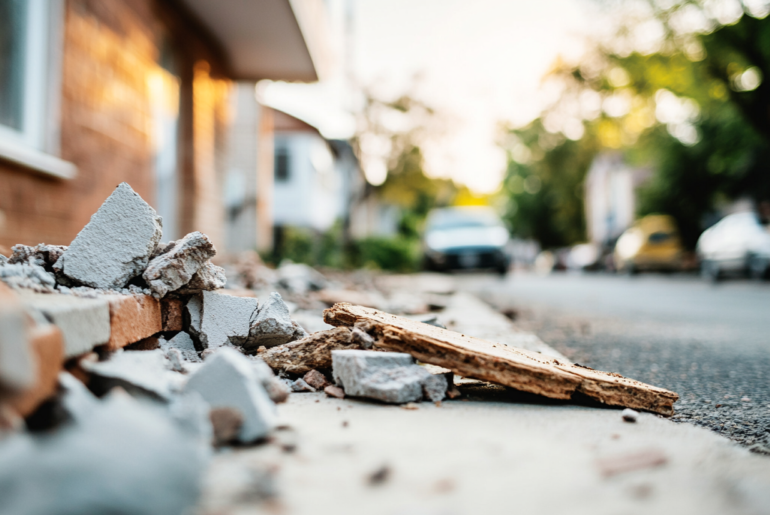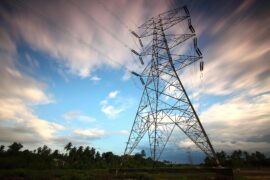This article may contain references to products or services from one or more of our advertisers or partners. We may receive compensation when you click on links to those products or services. Nonetheless, our opinions are our own.
Key Highlights
- Regular renters insurance usually does not include earthquake coverage.
- You can often buy extra earthquake insurance, usually as an add-on to your renters policy.
- Checking your policy papers, especially the declaration page, will show if you have earthquake coverage.
- Get to know important insurance terms like “covered perils” and “endorsements.”
- If you are unsure, contact your insurance agent for help.
Introduction
Are you ready if an earthquake hits? Renters insurance can help shield your things from several dangers. However, earthquake coverage usually needs extra attention. This guide explains how renters insurance and earthquake coverage are related. It helps you understand your policy and make smart choices.
Understanding Renters Insurance and Earthquake Coverage
Renters insurance helps protect your belongings and gives you liability coverage. Regular renters insurance plans usually cover common issues like theft, fire, and vandalism. But, damage from earthquakes is often not included. This is particularly important if you live in areas where earthquakes happen often.
What Renters Insurance Typically Covers
Renters insurance usually protects your belongings from risks like theft, fire, smoke damage, vandalism, and water damage from issues with plumbing. For example, if a pipe bursts in your apartment and damages your furniture, renters insurance can help pay for repairs or new items. Also, if someone gets hurt in your rented home and you are responsible, your insurance can help with legal costs.
Some policies also pay for extra living costs if your home cannot be lived in because of a covered event. This can include costs for temporary housing or hotels. The details of what is covered and the limits differ between insurance companies and types of policies. So, it’s important to read your policy carefully.
The Gap: Earthquake Damage in Standard Policies
Renters insurance covers a lot of risks, but it usually does not cover earthquake damage. Earthquakes can cause a lot of damage and can be a big financial concern for insurance companies. Because of this, having specialized earthquake insurance is important. It helps to protect against losses caused by earthquakes.
Before You Begin: Preparing to Review Your Policy
Reviewing your renters insurance policy helps you see what your earthquake coverage is. Before you look over your documents, get the things you need. This will make it simpler to understand your coverage and help you make good choices.
Documents You’ll Need
- Your Renters Insurance Policy: This is the main document that explains what you are covered for.
- Declarations Page: It gives an overview of your coverage. This includes what is covered, the limits, deductibles, and other important details.
- Endorsements (if applicable): These are changes or extra parts that enhance your policy, like adding earthquake coverage.
- Contact Information for Your Insurance Agent: This is helpful if you have questions or need help. You can find this information on your insurer’s website or in your policy documents.
Key Terms to Know
Knowing common insurance terms is important for reviewing your policy better.
- Covered Perils: Events or risks that your insurance policy covers.
- Deductible: The amount you must pay yourself before your insurance starts.
- Endorsement: A change or added detail to your policy that increases coverage.
- Exclusions: Events or situations that your insurance policy does not cover.
- CEA Policy: A type of earthquake insurance from the California Earthquake Authority.
- Dwelling Limit: The most your insurance will pay to fix or restore your home’s structure.
- Major Fault Lines: Cracks in the Earth’s crust that are known for having earthquake risks.
How to See If Your Renters Insurance Includes Earthquakes
Understanding your coverage is simple. Just follow these steps to check your earthquake coverage:
Step 1: Locate Your Declarations Page
The declarations page shows important information about your renters insurance policy. You can usually find it at the start of your policy document or by looking at your online insurance account.
Step 2: Identify the Covered Perils Section
Insurance companies usually show covered risks under a section called “covered perils.” Look at each peril listed closely.
Step 3: Check for Earthquake or Seismic Activity Reports
Look for terms like “earthquake” or “seismic activity.” If these words are mentioned, your policy covers earthquake damage. If they are not listed, your policy does not cover earthquake damage. In this case, it may be a good idea to get separate earthquake insurance.
Conclusion
It’s important to know if your renters insurance covers earthquakes. This helps you protect your things well. By checking your policy closely, you can find areas that need work to avoid big losses after an earthquake. Follow these tips to make sure your coverage is right for you. For more help, always talk to your insurance provider.
Frequently Asked Questions
Is earthquake insurance mandatory for homeowners?
No, earthquake insurance is not required, but it is strongly advised, especially in areas that feel a lot of earthquakes.
Will earthquake insurance pay for all my things if they get damaged?
Most policies mostly pay for damage to the structure. They usually have limited coverage for personal items. You can often add extra coverage for your belongings.
Is there a waiting period before earthquake insurance coverage starts?
Yes, earthquake insurance usually has a waiting period. This period can last from a few days to several weeks. Check the waiting period details with your insurance provider.
Can I get earthquake insurance if I rent out my property?
Yes, if you are a landlord, you can buy earthquake insurance. This will help protect your rental property from damage caused by an earthquake.
How do I buy earthquake insurance?
You can buy earthquake insurance by talking to your insurance agent. You can add it to your current renters policy or get a different policy from providers like the California Earthquake Authority (CEA).

Reviewed and edited by Albert Fang.
See a typo or want to suggest an edit/revision to the content? Use the contact us form to provide feedback.
At FangWallet, we value editorial integrity and open collaboration in curating quality content for readers to enjoy. Much appreciated for the assist.
Did you like our article and find it insightful? We encourage sharing the article link with family and friends to benefit as well - better yet, sharing on social media. Thank you for the support! 🍉
Article Title: Does Your Renters Insurance Cover Earthquakes? Here’s How to Check Your Policy
https://fangwallet.com/2025/03/10/renters-insurance-cover-earthquakes/The FangWallet Promise
FangWallet is an editorially independent resource - founded on breaking down challenging financial concepts for anyone to understand since 2014. While we adhere to editorial integrity, note that this post may contain references to products from our partners.
The FangWallet promise is always to have your best interest in mind and be transparent and honest about the financial picture.
Become an Insider

Subscribe to get a free daily budget planner printable to help get your money on track!
Make passive money the right way. No spam.
Editorial Disclaimer: The editorial content on this page is not provided by any of the companies mentioned. The opinions expressed here are the author's alone.
The content of this website is for informational purposes only and does not represent investment advice, or an offer or solicitation to buy or sell any security, investment, or product. Investors are encouraged to do their own due diligence, and, if necessary, consult professional advising before making any investment decisions. Investing involves a high degree of risk, and financial losses may occur including the potential loss of principal.
Source Citation References:
+ Inspo
There are no additional citations or references to note for this article at this time.












































